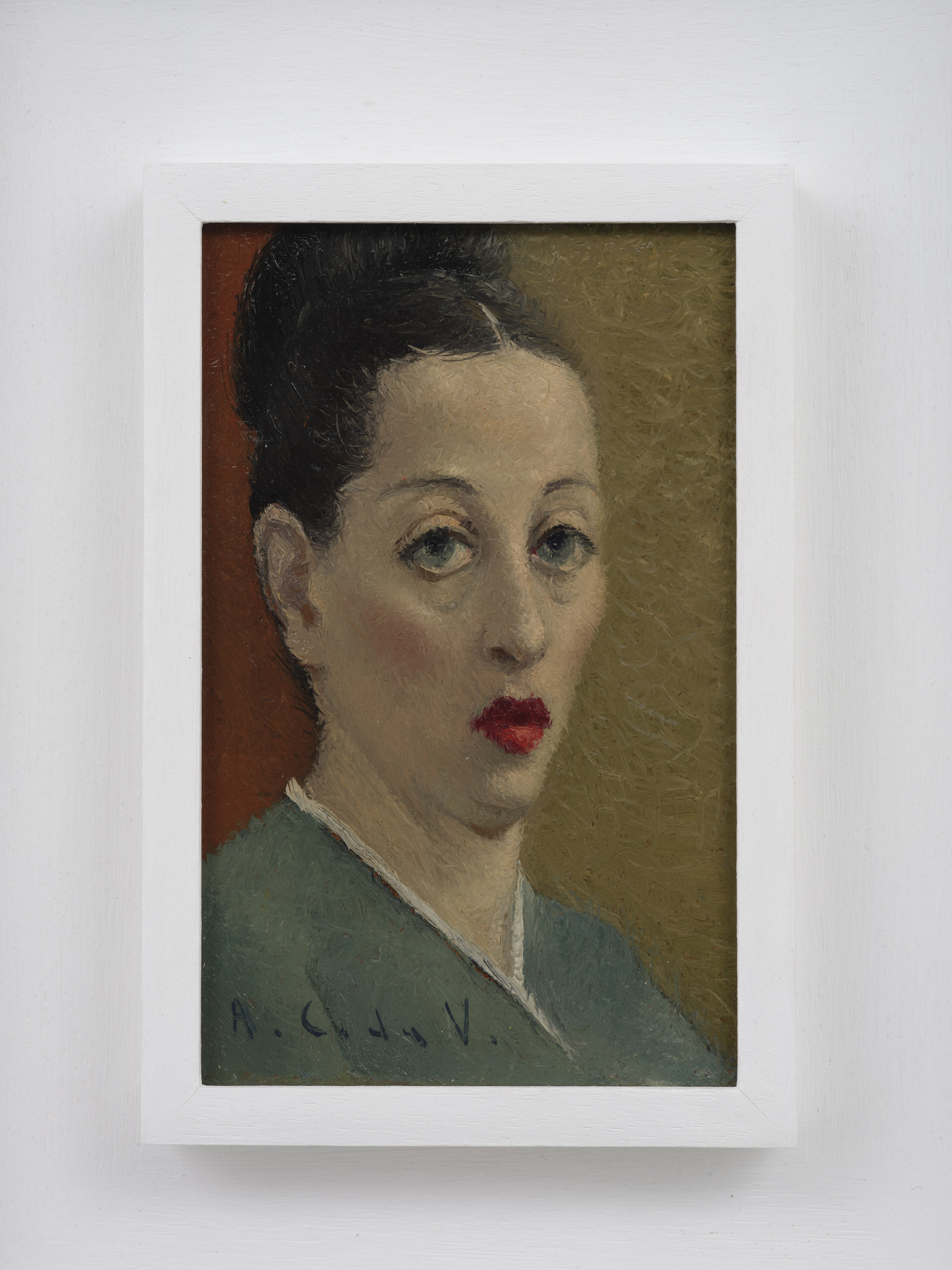Estate of Antonio Calderara
Self-taught as a child growing up in Milan, and later mentored for a time by a young Lucio Fontana, the earliest influences of Antonio Calderara were of the figuration and light effects of Piero della Francesca, Seurat and the Milanese Novecento painters. After abandoning his university studies in engineering in 1925 the young man dedicated himself fully to experimenting with colour and form. Through portraiture, landscapes and still lifes, Calderara depicted the people, scenes and objects of his native Italy – all suffused by a delicate, misty light inspired by the atmospheric glow of Lake Orta in Vacciago, where the artist moved in 1934 with his wife Carmela, and where he would work for most of his life. By the mid-1950s, Calderara began to move away from figurative painting to embrace a more geometric approach, radically reducing both the scale and the compositional elements of his paintings through use of simple forms and flat blocks of nebulous and subtle colour. Situated neither within Constructivist nor Minimalist movements, his pared-down vocabulary of lines and squares, refined colour palette and precise measurements nevertheless positioned Calderara closely with other minimalist painters at the time, including Piet Mondrian and Josef Albers, both of whom the artist admired greatly. Later in life, and with failing health, Calderara began to focus on watercolours, a medium that perfectly captured the subtleties of transparency, washed with an equal, uniform treatment.
Born in 1903 in Abbiategrasso, Italy, Antonio Calderara continued to work up until his death in 1978. Solo exhibitions include ‘Antonio Calderara: Light-Spaces. Paintings from Fifty Years’, Ernst Barlach Haus, Hamburg, Germany (2018); Kunstmuseum, Winthertur, Switzerland (2017); MASI, Lugano, Switzerland (2016); Fondazione Zappettini, Milan, Italy (2011); Pinakothek der Moderne, Munich, Germany (2003); Contemporary Art Museum of Genoa, Italy (1995); ICA, London, UK (1974); Kunstmuseum Düsseldorf, Germany (1973); Kunsthalle Bern, Switzerland (1969); Stedelijk Museum, Schiedam, Netherlands (1968); Kunstmuseum Lucerne, Switzerland and Museo d'Arte Moderna, Rio de Janeiro, Brazil (1965). His work was included in the Venice Biennale in 1948 and 1956 and Documenta 4 in Kassel, Germany in 1968. Most recently his work has been included in the 33rd São Paulo Bienal, Brazil (2018). His work is featured in numerous private collections, as well as the R&B Collection and Sammlung Hackenberg in Munich, Germany; P420 Art Gallery, Bologna, Italy and the Josef Albers Museum in Bottrop, Germany.
The legacy of this important Italian artist is preserved through the Fondazione Antonio and Carmela Calderara, the artist’s former home and studio housed within a 17th-Century villa-cloister of Vacciago, North of Milan. The collection includes many of Calderara’s own works, plus more than 300 artworks by dozens of international artists with whom he had relationships of friendship and esteem, all joined together by a general tendency towards abstraction. Established in 1979 by Giuseppe Alemani, the foundation organises an annual programme of exhibitions and is open to the public from May until October each year.
Exhibitions
-

Antonio Calderara: From Lake Orta
6 July – 20 August 2022
-

Portals
10 February – 9 April 2022
-

Antonio Calderara: The Double
1 March – 20 April 2019
-

Antonio Calderara: Painting Infinity
19 January – 17 February 2018










